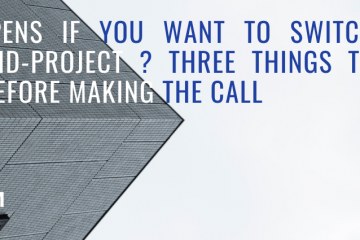Companies seeking to connect with our talent often ask us, “Where do I start?” We start by gathering initial information about the project and zero in on the key questions:
|
An Important Preliminary QuestionAre we all in agreement that this is the most important project to scope now? The 4 Essential QuestionsThese are the four vital questions to a successful project. They should be asked in order. See this article for more context.
More QuestionsThe more of these we can get answered early on, the better:
Whether you are planning to start a custom project or build your team extension, you should consider these questions from the very beginning. One of the best examples of proper planning is our success with Sportscastr app. Proper planning allowed us to deliver great results on time. We focused on user feedback and created a product that users love. |
Projects
What Happens If You Want to Switch Vendors Mid-Project? Three Things to Consider Before Making the Call
It’s time to face the facts: things with your project just aren’t going well. You brought on a vendor to help with software development or another business-critical IT task. You had a lot of optimism Read more…

